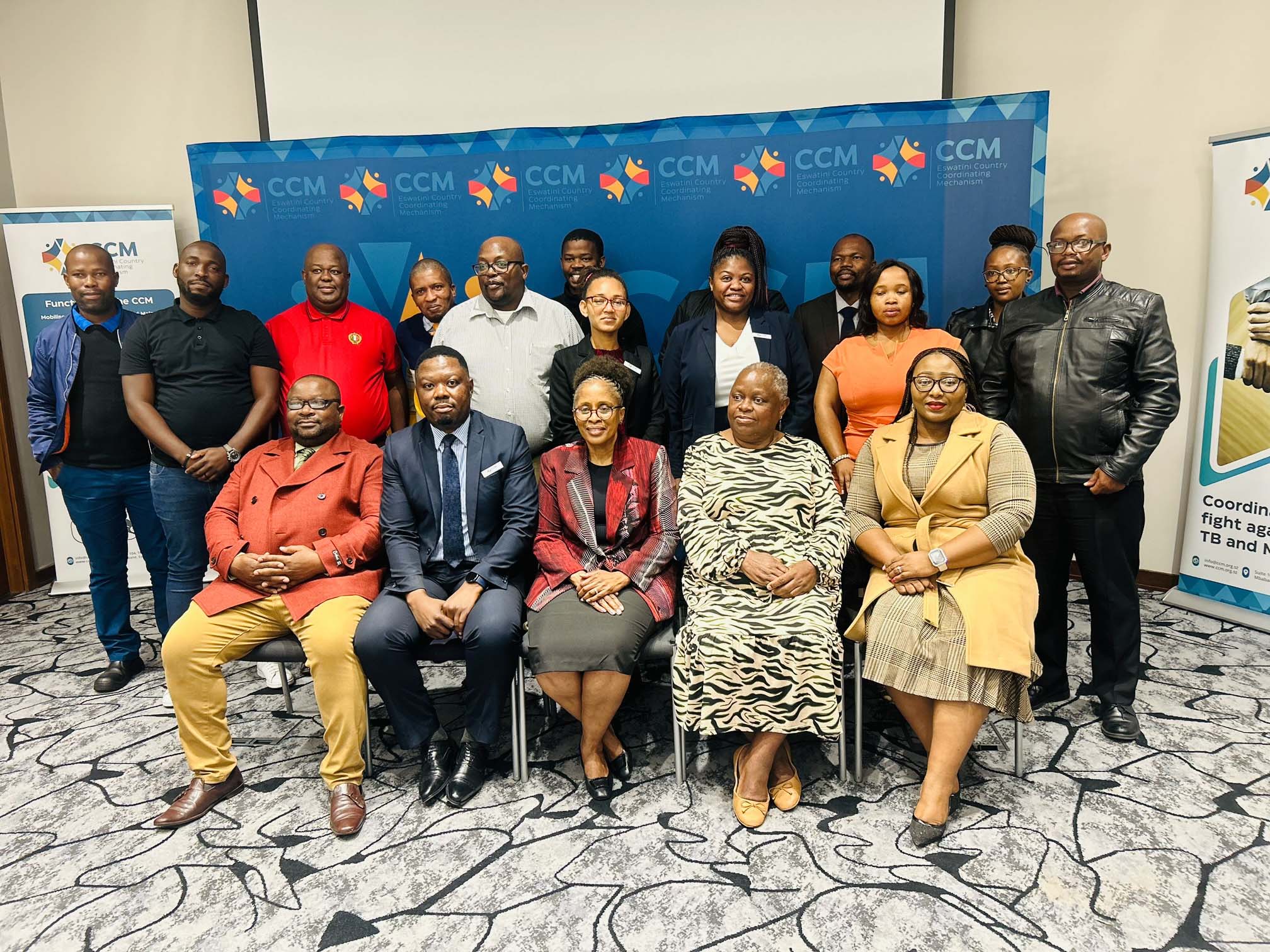
By Ncaba Ntshakala
Eswatini has successfully secured grants amounting to an impressive E6.48 billion through the Eswatini Country Coordinating Mechanism (CCM) over the past two decades, which has been a major achievement in the nation’s ongoing battle against HIV, tuberculosis (TB), and malaria.
The substantial financial support was disclosed during a recent media orientation hosted by CCM at the Hilton Garden Inn Hotel, where Dr. Advocate Nkosinathi Dlamini, the Executive Secretary of CCM, elaborated on the extensive efforts and the impact of these funds on the country’s healthcare system.
Since 2003, the CCM has facilitated the allocation and disbursement of over US$350 million (E6.4 billion) to help fight the diseases in Eswatini. Of this amount, US$341 million (E6.2 billion) has already been disbursed, which was hailed as reflecting the efficient use of the funds to address the pressing health challenges facing the nation.
These grants have been pivotal in strengthening Eswatini’s health systems, particularly in the fight against the three major diseases that have long plagued the country.
Support
The National Emergency Response Council on HIV and AIDS (NERCHA) has been the primary beneficiary, receiving a staggering E5.9 billion. This funding has been instrumental in driving the country’s HIV/AIDS programs, which have historically been one of the most pressing public health concerns in Eswatini. In addition to NERCHA, the Coordinating Assembly of Non-Governmental Organisations (CANGO) has also received significant support, with E340 million allocated to support its efforts in the health sector.
Dr. Dlamini detailed the allocation of these funds across various disease programs, highlighting the focused approach of the CCM. The HIV program has been the largest recipient, securing E3.5 billion (US$192.6 million) to sustain the fight against the epidemic.
RELATED: Eswatini pledges E17.6 million for the fight against HIV/AIDS, Malaria
Tuberculosis, another major health challenge, received E647 million (US$35.1 million), while programs targeting both TB and HIV were allocated E1.6 billion (US$87.7 million). Malaria, which continues to pose a threat in certain regions of the country, received E323 million (US$17.5 million). Additionally, some funds have been earmarked to enhance resilient and sustainable health systems (RSSH), with E151 million (US$8.2 million) which is dedicated to strengthening the overall healthcare infrastructure.
Again, Dlamini stressed that Eswatini has been allocated an additional E824 million (US$45.4 million) for the 2023-2025 period. This new tranche of funding is set to continue the fight against HIV, TB, and malaria, while also enhancing the resilience and sustainability of the nation’s health systems.
The allocation was made in accordance with a methodology approved by the Global Fund Board, which takes into account factors such as disease burden and income levels, classifying Eswatini as a lower-middle-income country.
Breakdown
The breakdown of the new funding includes E586 million (US$32 million) for HIV, E180 million (US$9.8 million) for TB, and over E48 million (US$2 million) for malaria. Dr. Dlamini emphasized the strategic importance of this funding, noting that it is a testament to the CCM’s dedication to securing essential resources for the nation’s health sector.
Country Coordinating Mechanisms (CCMs) play a crucial role in the Global Fund partnership, serving as national committees that submit funding applications and oversee the management of grants. Eswatini’s CCM includes representatives from a diverse range of sectors, including academic institutions, civil society, faith-based organizations, government, multilateral and bilateral agencies, non-governmental organizations, people living with diseases, the private sector, and technical agencies. This broad representation ensures that the allocation and use of funds are aligned with the needs of those most affected by the targeted diseases.
CCM crucial in enhancing Eswatini’s healthcare funding since 2003
Dr Advocate Nkosinathi Dlamini further elaborated on the CCM’s pivotal role and its evolution since its inception in 2003. He outlined the organization’s journey, detailing how it has become integral to managing and directing international health funding in Eswatini.
He shared that CCM was conceived as part of a broader initiative by the Global Fund, born from discussions among global leaders in the early 2000s under the United Nations. These discussions highlighted the urgent need to address the significant morbidity and mortality rates associated with HIV, TB, and malaria, which were posing a severe threat not only to public health but also to economic activities such as tourism.
Dlamini stated that the CCM operates as a liaison between the Global Fund and the government of Eswatini, ensuring that the funds are used effectively and transparently.
Structure
The structure of the CCM is designed to include a diverse range of stakeholders, reflecting a comprehensive approach to health governance. Government representation constitutes 35% of the CCM, with high-level officials from seven ministries actively participating. This inclusion ensures alignment with national health policies and priorities.
Civil society was said to also play a critical role in the CCM which Dlamini said provides a platform for community voices and experiences to inform health interventions.
RELATED: PM challenges Lobamba to combat HIV/AIDS through social behavioural change
This encompasses individuals living with HIV, TB, and malaria, as well as NGOs, faith-based organizations, academia, and other relevant groups. The inclusive nature of the CCM ensures that the strategies and programs implemented are community-centred and responsive to the real-world challenges faced by those most affected by these diseases.
The history of CCM in Eswatini is marked by its official registration in 2011 under the Company Act of 2009, with the Prime Minister’s Office as its line ministry.
“Then, of course, having started in 2003, CCM terms of benefiting from the Google Fund, but then officially it was in 2011 when CCM and Swatini were legally registered, using the Company Act of 2009. Our line ministry is the Prime Minister’s Office. That is where we report all that we are doing,” said Dlamini.






